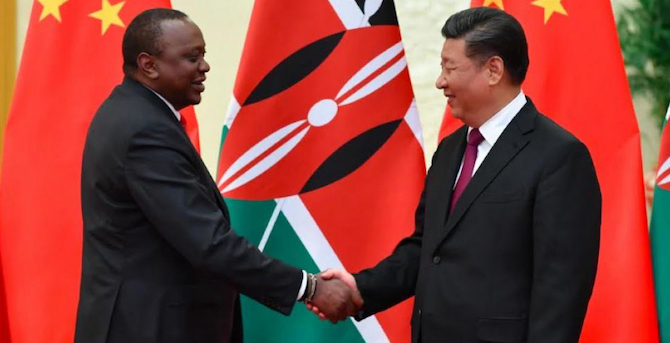According to news reports, treasury figures showed that Kenya’s debt level has reached record highs despite President William Ruto‘s vow to tame the country’s appetite for loans. The data revealed that the total public debt of Kenya has risen by a record 10.8 billion US dollars to 70.75 billion US dollars, breaching the debt ceiling amount set in June 2022 by the parliament and exceeding the previous year’s debt by more than 18%.
The increase in public debt was attributed to external loan disbursements, exchange rate fluctuations and the uptake of domestic and external debt. News reports further suggested that loan repayment costs, mainly to China, have shot up as the local currency trades at record lows of around 144 shillings to the dollar. The cost of debt servicing in the fiscal year that ended in June was $2.7 billion, of which the highest payment – 107 billion shillings ($743 million) – went to China. According to thecitizen website, Kenya’s debt repayment to China continues to rise. An increase in debt repayment was due to factors like maturity of some of the loans taken from China. For example, the Standard Gauge Railway (SGR) was financed by a loan from China Exim Bank that matures in 2027. The government is also repaying loans taken from China to finance other infrastructure projects, such as the Mombasa Port expansion and the Lamu Port and Lamu-Southern Sudan-Ethiopia Transport Corridor (LAPSSET).
It must be noted though that Chinese loans account for roughly 64 per cent of Kenya’s current stock of bilateral external debt and only 17 per cent of total external public debt. Multilateral borrowing is almost double the bilateral total, with the World Bank being Kenya’s largest single external creditor.
“It is too early to say whether China will come to the rescue of Kenya, which is still negotiating with the IMF for a possible bailout.”
Meanwhile, the global credit rating agencies, which have been keeping an eye on Kenya’s financial health, have already downgraded the country’s ability to repay international lenders from “stable” to “negative”, citing tax hikes and social unrest. Fearing the strict actions, Kenyan lawmakers voted to change the debt ceiling from a fixed shilling amount to a proportion of the country’s gross domestic product (GDP), although the amendment is yet to be passed by Senate. However, the increase in debt repayment to China is a worrying development for Kenya. It is a sign that the country is struggling to manage its finances, and it is likely to have a negative impact on the economy.
Experts express fear of Kenya going Sri Lanka way and are skeptical about China coming to the rescue of Kenya which it considers strategically important country. They cited China’s role in Sri Lanka financial crisis, stating that China did not come to its rescue in the same way that it did for Zambia and Chad. In those cases, China agreed to restructure the debts of the countries, which meant that they would have to pay back less money over a longer period of time. However, China did not provide any direct financial assistance to Sri Lanka. Experts said that China was simply not willing to provide financial assistance to Sri Lanka because it did not see it as a strategic priority.
Bejing has been investing heavily in Africa in recent years, and it is seen as a key market for Chinese goods and services. Sri Lanka, on the other hand, is not seen as being as important to China’s strategic interests. It is too early to say whether China will come to the rescue of Kenya, which is still negotiating with the IMF for a possible bailout. China, on its own, is unlikely to come forward to help.
However, the outcome of any negotiations between the two countries will depend on a number of factors, including the political situation, the state of the Kenyan economy, and China’s strategic interests in the region. Will China go to the rescue of Kenya? What is out of question though is that also Bejing is worried about the situation. As recently as last May, Chinese hackers targeted Kenya’s government in a widespread, years-long series of digital intrusions against key ministries and state institutions. According to several sources, the hacks were aimed, at least in part, at gaining information on debt owed to Beijing by the East African nation.
Kenya is a strategic link in the Belt and Road Initiative.
portalplus.si

